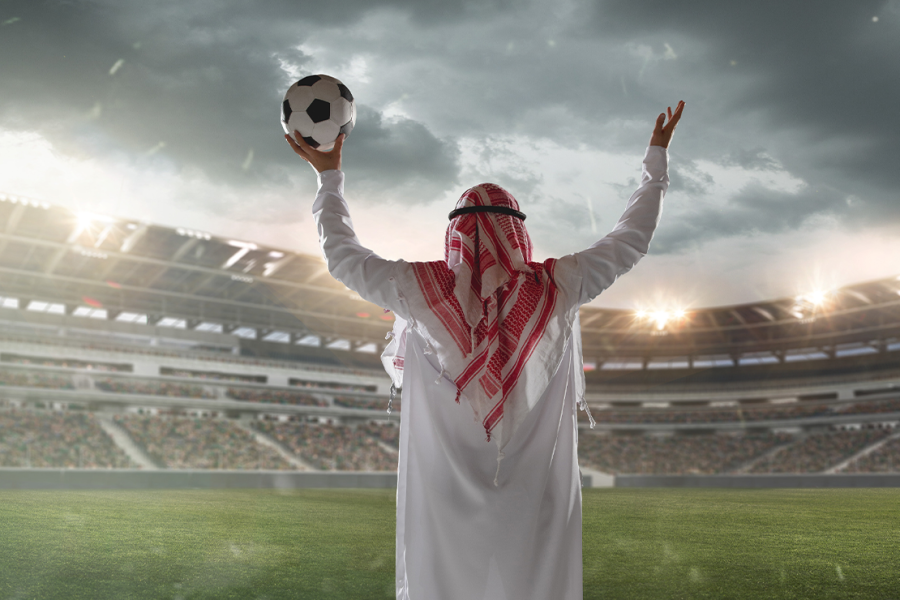Introduction
The Gulf Cooperation Council (GCC) countries have notoriously been accused of sportswashing, a tactic to improve one’s public image using sports. The use of Gulf Sovereign Wealth Funds (SWFs) to buy Western sports teams is a step further from this; it is a way to build geopolitical soft power. Investment in sports has become an important tool to advance the state’s economy and improve ties with foreign governments. The increasing involvement of Gulf SWFs, specifically the Saudi Arabian Public Investment Fund (PIF) and Qatar Investment Authority (QIA), in acquiring Western sports teams has sparked considerable debate and raised numerous questions about the implications for global sports and human rights.
The Gulf SWFs have shown a marked interest in the English Premier League. The acquisition of Manchester F.C. by UAE’s Abu Dhabi United Group, which transformed the club into a financial powerhouse, has been criticized by many due to their violations of UEFA’s Financial Fair Play Regulations. Investments such as this one have drawn scrutiny over sportswashing and the unfair use of excessive investments. In addition to buying sports teams, the Gulf countries use sponsorships to rebuild their image, most notably by using popular airlines such as Emirates and Etihad.
Beyond football, Gulf Funds’ investments extend into golf, namely the Saudi Arabian PIF-backed LIV Golf, which was created as a competitor to the PGA Tour. Moreover, the discussions in the last year of a merger between LIV Golf and PGA Tour have sparked further controversy, most notably due to the lack of transparency and the creation of a Saudi Arabian-backed golf monopoly. Like their football investments, these also face accusations of diverting attention from human rights issues.
The acquisitions of Western sports teams by Gulf SWFs represent a complex interplay of economic strategy, geopolitical maneuvering, and efforts to reshape national images. These investments bring significant financial benefits and global exposure to the countries, at the expense of the rights of their citizens. This raises critical ethical and human rights questions that need careful consideration.
Concluding remarks
The Gulf countries’ use of their sovereign wealth funds to invest in sports is a clear strategy to improve the state’s image, divert attention from their human rights violations, and strengthen foreign relations. The most notable concern is the lack of human rights considerations and guidelines in sports. Without clear guidelines and enforceable policies, human rights are sidelined in sports with financial investments taking priority.
Unlike the NFL, the Premier League does not set a limit on foreign or private investment, which is why Gulf SWFs have been able to acquire controlling interests in multiple teams. This is especially clear with the acquisition of Newcastle United by PIF. Despite assurances from the Premier League that the Saudi Arabian government would not directly control the club, the close ties between PIF and the Crown Prince raise concerns about the extent of governmental influence. Jurgen Klopp’s public questioning of this approval underscores the unease felt by many regarding the true independence of these funds from their states.
The LIV Golf merger with the PGA Tour demonstrates how money can be used to overshadow human rights concerns. Moreover, Saudi Arabia, a country with no golf history, is forming a monopoly on the sport. This raises severe concerns about the country’s ability to influence foreign organizations.
The growth of investments may lead to GCC countries becoming major stakeholders in sports, meaning they can leverage this to influence foreign policy. With a prevailing incidence of impunity for human rights violations, this trend could severely undermine any progress made to hold the countries accountable for their violations.
Recommendations:
1. As stated by Sacha Deshmukh, human rights-competency tests must be incorporated into the owners’ and directors’ tests.
2. FIFA must strengthen its commitment to human rights and create an enforceable standard for all its teams. This should include, but is not limited to:
- Ensuring all players respect human rights, whether in their professional or personal lives
- Investigations into all major investors to ensure they are upholding international human rights standards
- Ensuring that all infrastructure is built humanely, and the conditions of the workers are up to international standards.
3. Overall, international human rights standards should be streamlined in all areas of sports.
To download the briefing paper press on the file below:
Briefing paper- Gulf SWF acqusitions of sports teams

